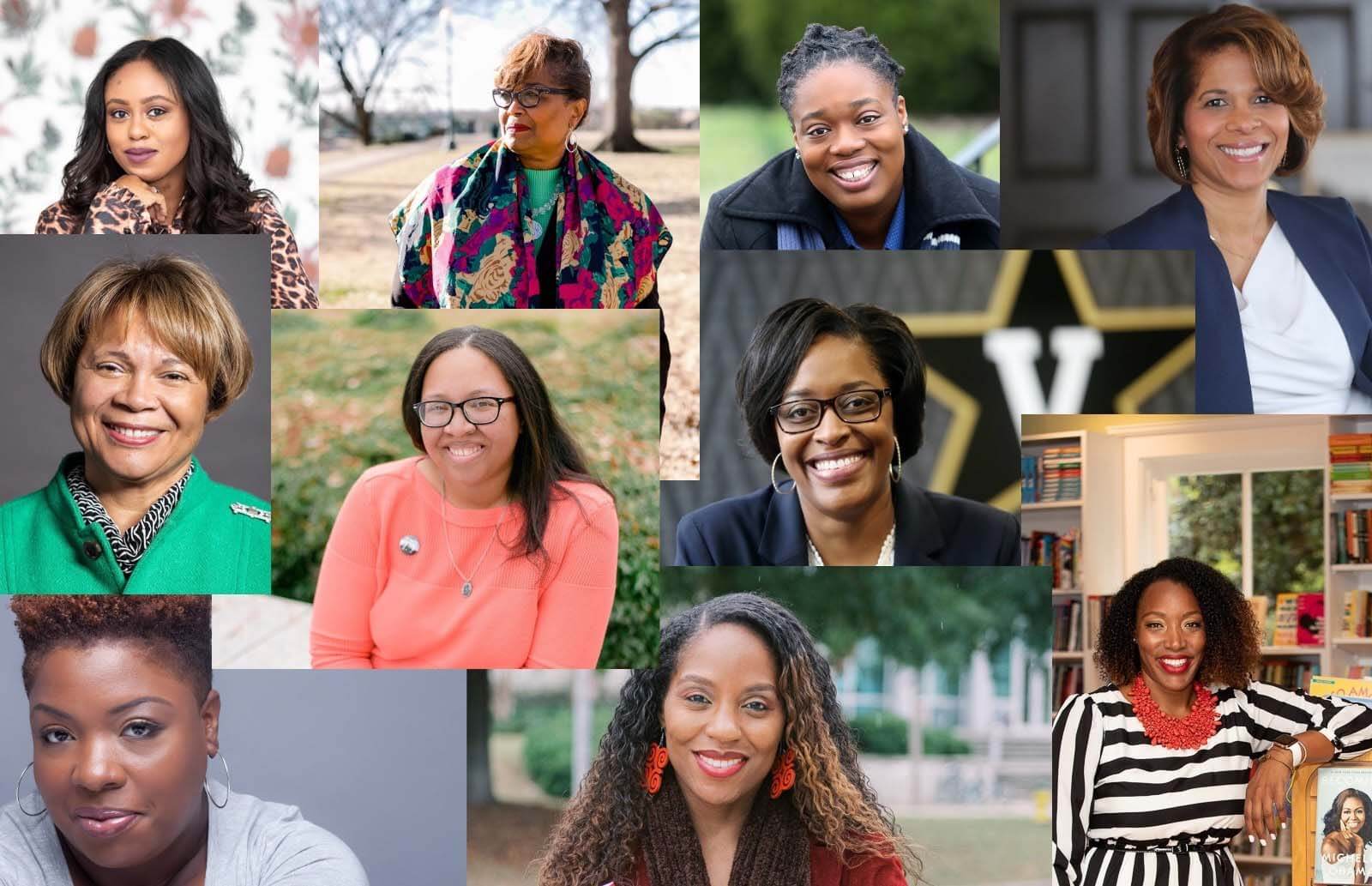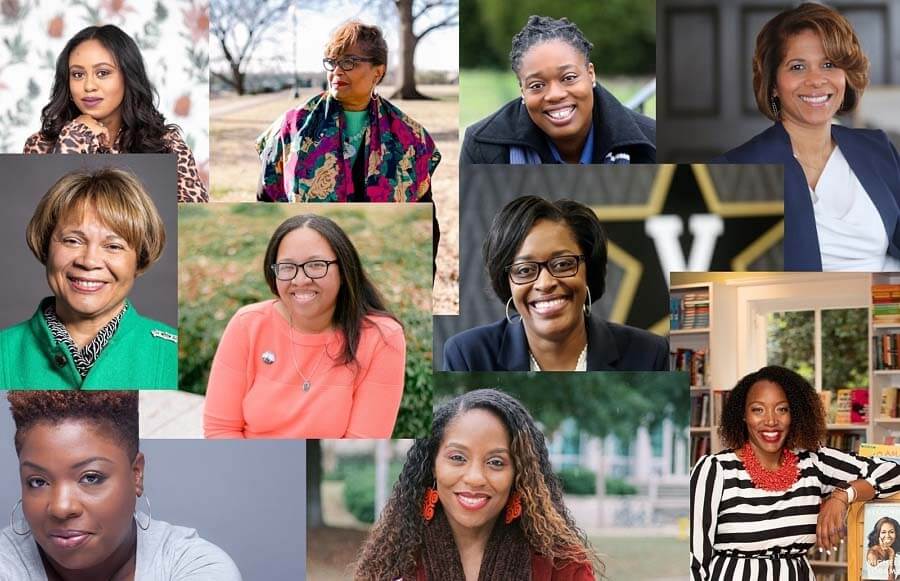It’s a strange time in America and across the globe. While we are mourning so many lives lost to this novel virus, the number of jobs lost and businesses struggling to survive, while we clean up after natural disasters and find glimmers of hope, we are also being confronted with the realities that stubbornly stay interwoven in our society. Across this nation, and in many of our communities, people are outraged. People of all colors are coming together to say ENOUGH. It’s been more than 55 years since the Civil Rights Act was passed. We’ve elected an African American President to two terms in office. Yes, there has been progress, but there is still a long way to go.
Much of the journey starts with active listening.
Here are 10 quotes from previous FACES of StyleBlueprint*, all women of color. Each quote seems especially poignant with the lens of the last week filtering our view.
*Click on any of their names, in the coral color below, to read their full FACES interview.
What does being an activist mean to you?
T. Marie King, Head of Local Voices Network Birmingham: I see my style of activism as being an influencer but also a connector. I’m not saying I have a lot of power, but I do feel like I have a level of influence. I’m at tables where I can have conversations and say “I’m seeing this happen in this community,” or “I’m seeing this at this school. What can we do to adjust that?” I’m able to have the ear of people who can make those changes or decisions.
I’m a connector in the sense of being able to connect people to resources or opportunities that they may not have known existed. All the other activism stuff comes with it — protesting or speaking out against something — but I think activism is deeper than that. I think you really have to be connected to the heart of people in order to truly see change happen.
What is your best advice?
Beverly Robertson, former director of the National Civil Rights Museum: You’ve never lived a perfect day until you’ve done something for someone they could never do for themselves.
What’s the best advice you’ve ever received?
Candice Storey Lee, Athletic Director, Vanderbilt University: I heard something not too long ago that’s sticking me: “Wisdom is doing today what you’re going to be proud of later.”
Why is it so important that we examine our own reading history and make an effort to pursue books by and about people who don’t look like or come from a similar background as us?
Renée Hicks, founder of Book Girl Magic: I think it comes down to understanding one another better. When you dive into books by or about black people, you get to hear our stories being told firsthand. I think history books, especially in grade school, have a way of lightening the trauma and hardships that we, as black people, have gone through. I know I truly didn’t have a good understanding of all that black people went through until these past few years. The more I continue to research and read, I find myself in awe of how strong our people are as a whole. From slavery to the Jim Crow Era, to The New Jim Crow, it paints a bigger picture for me. Black people as a whole, still to this day, struggle to have a voice, and I wanted to change that. We have such important and inspiring stories that need to be told and heard by all.
Based on your research (for your dissertation for your doctorate in higher education administration), what are some unique obstacles black women face when it comes to mental health?
Nadia Richardson of ‘No More Martyrs’: The findings did unearth the “strong black woman” idea, but it really talked more about racism, sexism and classism. The “strong black woman” idea persists because of those things. Those messages were instilled in us as a defense mechanism against the systems of inequality that we have no choice but to push back against. It’s not enough to say, “Oh, you can’t be strong all the time.” Fix the systems so that they don’t require me to be strong all the time, and then I won’t feel like I have to, and I can prioritize my wellness in the ways other people can.
What would people be surprised to learn about working in the fashion industry?
Bettina Benson of fashion brand Chloe Kristyn: The use of models of color and of various sizes in campaigns and on the runway is significant, but I always like to bring awareness to the fact that there is very little representation of designers of color within major retailers and independently owned boutiques, especially in the South. I am so grateful for the retailers that partner with us because they are not only supporting a woman-owned business that supports other women, but they are championing diversity and inclusion as well.
You are extremely involved in the community. Why is that so important to you to be involved and give back?
Stacey Garrett Koju, attorney: I have been volunteering since I was 14, starting in a nursing home. I loved that experience and have done some form of volunteering since. We live in a society where we are all inextricably intertwined, and as much as we can, we should give to others — it’s important to keep us all lifted and moving forward.
In what ways has Broadway become more accessible for both audiences and actors? In what ways do we still have a little bit or (a long way) to go?
Maiesha McQueen, Broadway actress: We’ve got a long way to go. Hamilton was great, and there were programs that Lin Manuel [Miranda] specifically created for a diverse audience to be able to see it. And by “diverse,” I don’t just mean racial or culturally, I also mean socioeconomically. But even in New York, even if you are a resident of New York, in many ways Broadway is still a detached sort of thing. I, personally, feel like there’s still a lot of work to do in terms of not only diversifying audiences but also diversifying stories. I think that Hamilton was great. It created a lot of opportunities for artists of color to work, and for people to see a show like that. I think the conversation is just about what kinds of stories we’re telling, and who’s included. So it’s an ongoing conversation. I think a lot of people in my business are talking about it and trying to figure out how to create more open spaces for audiences and different types of work. Hopefully, we’re heading in the right direction.
How does it feel to be the first African American woman to be mayor in Charlotte?
Mayor Vi Lyles: It’s certainly historic, and I’m proud to have made history. I think it also speaks volumes about how much our city has grown just in the last year alone. Given the recent challenges that Charlotte has faced, I feel that my election shows the city is a place that values inclusion, embraces our challenges and will move forward with action.
What is the most important thing we can do … to come together and grow positively?
Odessa Kelly, Executive Director of Standup Nashville: Stop avoiding hard conversations. There are issues that are clearly racial issues — it doesn’t mean that if you’re on the other side of it that I’m calling you a racist. But I’m saying there’s an issue that has probably been brought out of tradition because we’re here in the South. So, let’s get past the white guilt barrier and have an honest conversation about how we get past these things. No one’s asking for a handout. Everyone’s just asking for an actual pathway to have a way out of it, or fix it, or for us to grow together. To be heard. I don’t want to just stay on the racial aspect — I think it’s a social issue, too …
*********
We are grateful that Reliant Investment Management underwrites our FACES series each week, supporting the women of this community. Please find out more about them HERE.




















